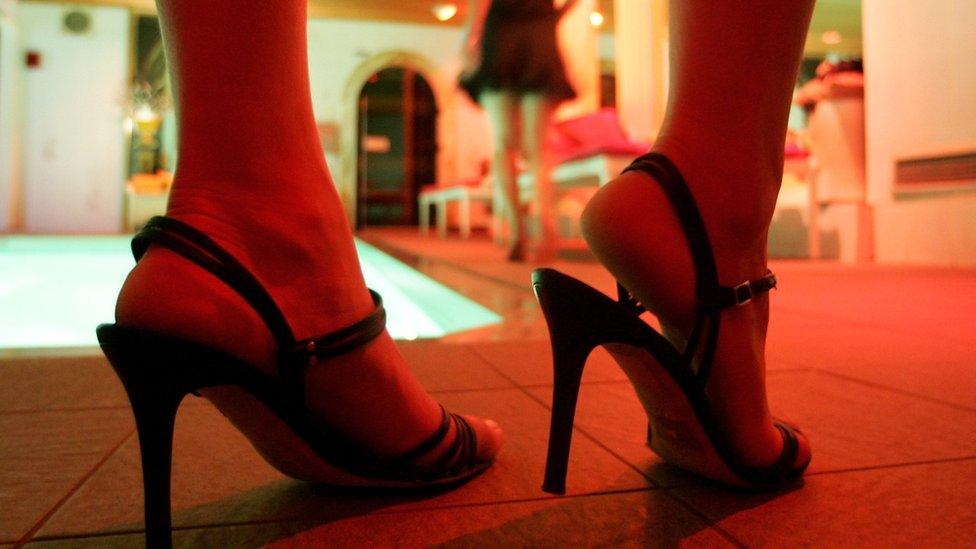Panama Papers: Nobility and brothel owners named in leaks
- Published

German brothel owners were among the names contained in the leaks
The list of Germans named in the Panama papers makes for colourful reading.
Among the board directors and estate agents who appear to have benefited from shell companies established by Mossack Fonseca are members of the German nobility, recipients of the German honours system and a number of brothel owners.
The story may have cracked open a network of global corruption. But it is a big story for Germany too, not least because the data was initially obtained by one of the country's leading newspapers and because Mossack Fonseca was co-founded by Germany-born Juergen Mossack.
Panama Papers reaction - latest
Hundreds, possibly thousands, of Germans are named in the Panama Papers. So are the country's banks. Sueddeutsche Zeitung says "there is hardly a well known financial institution that doesn't appear".
Siemens scandal
And it is possible the revelations will shed light on one of the country's enduring corruption scandals.
Sueddeutsche journalists believe several former managers from manufacturing giant Siemens who were prosecuted for bribery a decade ago may have held on to some of their slush fund cash. The papers reveal that €3m ($3.4m; £2.4m) may have ended up in private accounts in the Bahamas and Switzerland.
Siemens has said it will investigate the matter and give a statement if new details come to light.
In a country where, as tax expert Stefan Bach says, "middle class people have a relatively high tax burden and working people have to pay their taxes", it is perhaps unsurprising that many are disgusted, if unsurprised, by the revelations.
"We cannot allow that one part of society works hard, sticks to the rules and pays taxes while another part of society cheats," Vice Chancellor and Economy Minister Sigmar Gabriel told one publication.
Ban mooted
The German government wants a worldwide ban on offshore companies whose owners remain anonymous.
At a press conference on Tuesday, German Justice Minister Heiko Mass spoke about a planned new national transparency register that would oblige offshore companies to disclose the identity of their owners.
The new law has been planned for some time. The publication of the Panama Papers, Mr Maas said, proved how necessary such a move was.
But, when pressed, he admitted that Germany was in reality powerless to outlaw the creation of anonymous offshore companies. The government would, he said, urge further international cooperation and data sharing.

Panama Papers - tax havens of the rich and powerful exposed
Eleven million documents held by the Panama-based law firm Mossack Fonseca have been passed to German newspaper Sueddeutsche Zeitung, which then shared them with the International Consortium of Investigative Journalists, external. BBC Panorama and UK newspaper The Guardian, external are among 107 media organisations in 76 countries which have been analysing the documents. The BBC does not know the identity of the source
They show how the company has helped clients launder money, dodge sanctions and evade tax
Mossack Fonseca says it has operated beyond reproach for 40 years and never been accused or charged with criminal wrong-doing
Tricks of the trade: How assets are hidden and taxes evaded
Panama Papers: Full coverage; follow reaction on Twitter using #PanamaPapers; in the BBC News app, follow the tag "Panama Papers"
Watch Panorama on the BBC iPlayer (UK viewers only)